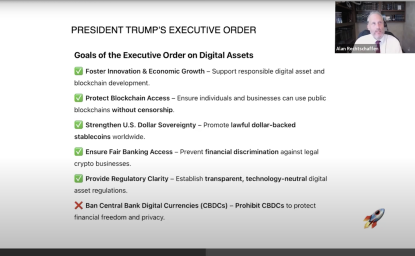Mapping the Human Genome: Risks and Benefits
David Rejeski, director of the Wilson Center's Foresight and Governance Project, lauds the benefits but warns of the ethical and moral implications of the sequencing of the human genome.
David Rejeski, director of the Wilson Center's Foresight and Governance Project, lauds the benefits but warns of the ethical and moral implications of the sequencing of the human genome.
When some future historian chronicles the 20th century, the sequencing of the Human Genome will certainly stand out as one of mankind's greatest achievements. We have entered the genetic age. It is entirely possible, given present trends in sequencing technologies, that by 2040 each of us could have our entire genome sequenced for under $150. Certainly within the next 15 years, genotyping technologies capable of "reading" key genetic information from blood or saliva samples will become standard tools in medical practice.
We will see an increasing "individualization" of medicine—an ability to match drugs and other therapeutic interventions to an individual's genetic makeup and physiology. This will have enormous benefits, both in terms of better health care and potential cost reductions. Drug efficacy will be increased, side effects reduced, and whole new classes of drugs introduced into the marketplace. But genetic enlightenment will not be a one-sided affair.
Most of what genetics will tell us about ourselves will not be predictive, but suggestive. Genetics will provide us with few absolute truths about our destinies, only probabilities about increased risks for disease and increased sensitivities to chemicals in our environment or to the foods we consume. This information will present individuals with difficult choices in terms of lifestyle changes, medical options, and decisions about conceiving offspring. It will require major investments in public education and a vastly expanded counseling infrastructure in the medical and public health areas.
As a society, we also will be confronted with the ethical issues that often occur when diagnostic tools are turned into discriminatory instruments for screening people or when therapeutic techniques are applied to the enhancement of individual capabilities or traits. And this will happen, if not in the United States then in other countries with lax ethical standards or different cultural attitudes toward such technological interventions.
Finally, the genetic age is built on the digital age. The most intimate information about individuals, their genetic makeup, will be reduced to digital information that can be copied, shared, and moved over networks.
Virtually every major technological revolution of the past century, from the telegraph to nuclear power, has been greeted with enormous enthusiasm. The sequencing of the genome is no exception. We should be optimistic about the potential for humankind but attuned to its potential ethical implications and conscious about our moral obligation to anticipate the impacts of our inventions.

The Science and Technology Innovation Program (STIP) serves as the bridge between technologists, policymakers, industry, and global stakeholders. Read more


